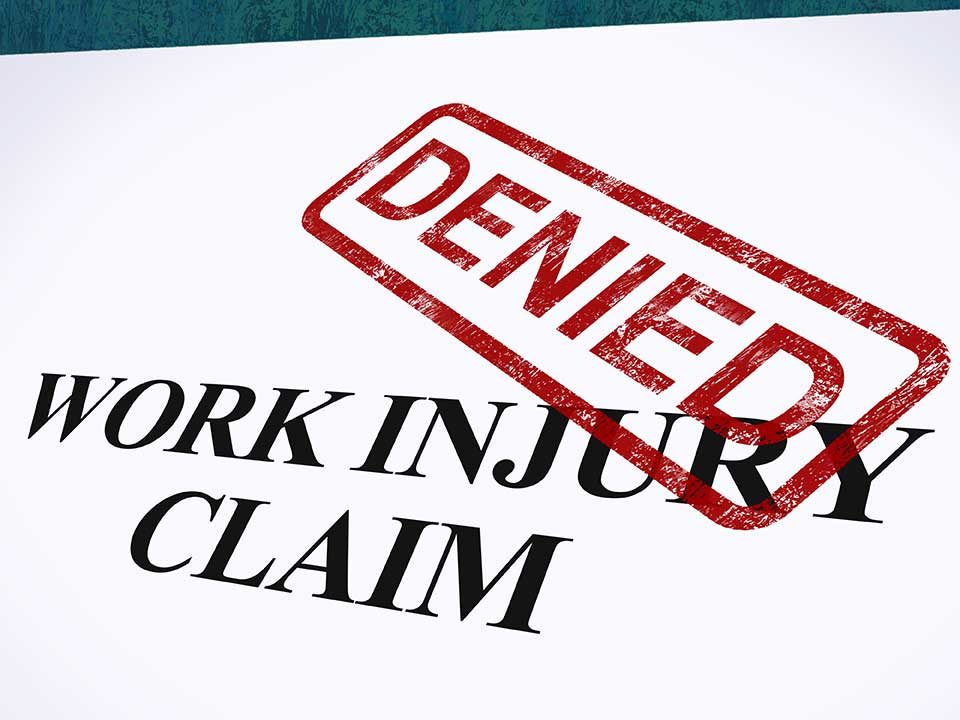With an experienced attorney, injured workers can avoid these 5 Workers’ Compensation Mistakes
Try as we might to prevent them, injuries happen. That’s why legislators, employers, and insurers have created the worker’s compensation safety net: Protecting injured workers and employers alike from the crushing and unpredictable medical costs and lost time that a work-related injury or illness can cause.
The worker’s compensation system is a legal system, and a bureaucracy, with a lot of complicated rules that aren’t easy even for professionals to navigate. Workers trying to go it alone are frequently lost in the maze.

Meanwhile, both employers and the insurance companies themselves already have lawyers actively working to limit their own liability so that workers have to absorb more out of their own pockets.
Here are five common mistakes that workers make that cost injured workers money and benefits:
- Failure to document. Make it a habit to document every injury on the job, no matter how minor. A tiny back twinge you get moving a crate can be a sign of more severe problems to come. Significant exposure to hazardous material can cause health problems well in the future that aren’t immediately apparent. Without a paper trail, it is very difficult for you to come back to the worker’s compensation system and demonstrate that the injury or medical condition is work-related. It’s not enough just to tell your doctor. Your doctor may not be aware of the administrative time requirements in the Colorado worker’s compensation claims system. It’s important you report the injury to your employer at the time of occurrence. The longer you wait, the more difficult it will be for you to demonstrate your injury happened at work. Any unnecessary delay could be a window for insurance company attorneys to challenge your claim. File your claim for benefits as soon as possible.
- Failure to get witness statements. Insurance companies work hard to find ways to deny claims – often by calling the workers’ version of events into question in court. If you’re injured on the job, get a witness to fill out a report as well. If it’s just you saying you hurt your back on the job, that’s easy to challenge. If three co-workers witness the same accident and are on record with what happened at the time, insurance companies are less likely to attempt to challenge your claim.
- Failure to retain documents. Assume that the insurer and your employer will lose all relevant paperwork that supports your claim, in the event of a dispute. It doesn’t happen all the time, but it happens enough where you definitely want to keep your own copies of all accident reports, witness statements, communications with your boss, and medical records.
- Thinking your claim will be covered by health insurance. Many times, when an injury is clearly work-related, a health insurance company will refuse to cover it. They have set their individual premiums based on the knowledge that work-related injuries or illnesses are covered under the worker’s compensation system. If you attempt to use your regular health insurance coverage as a substitute for the worker’s compensation system, they may kick your claim back. If you didn’t take care of the documentation, you could get left holding the bag. Even if your health carrier does honor the claim, they’ll only pay once you’ve covered your deductible. And they don’t pay for lost income from an injury or disability – they just help you with the costs of treatment. The worker’s compensation system not only pays for your wage loss but unlike health insurance – which often limits how much they will pay during your lifetime – there are no limitations on the dollar amount of medical care you can receive under workers’ compensation.
- Trying to go it alone. Workers’ compensation law is complex. There are a lot of rules and exceptions in the law, and a lot of Colorado-specific information you need to know to get a claim covered. It’s extremely difficult for a layperson to navigate the worker’s compensation system. At best, there are frequently needless delays in filing a claim. At worst, the worker doesn’t get compensation at all – even if he or she should rightly be entitled to a large settlement to make up for pain and suffering, lost work, or even damages due to employer negligence or bad faith on the part of the worker’s compensation carrier. Even the Colorado Employees’ Guide to Workers Compensation states that the guide is not a substitute for legal advice.
This isn’t a field for rookies:
For the best chance of a successful conclusion, make sure that any workers compensation attorney you select to represent you already have years of experience in helping workers through the worker’s compensation system – specifically in Colorado.
Kaplan Morrell’s attorneys have 15 years of success here in Colorado in getting workers their benefits. Don’t be the only one at the table without professional, experienced advice and representation.
Call us at Kaplan Morrell at 970.356.9898 for a free consultation concerning your claim. Don’t delay – time is of the essence.
